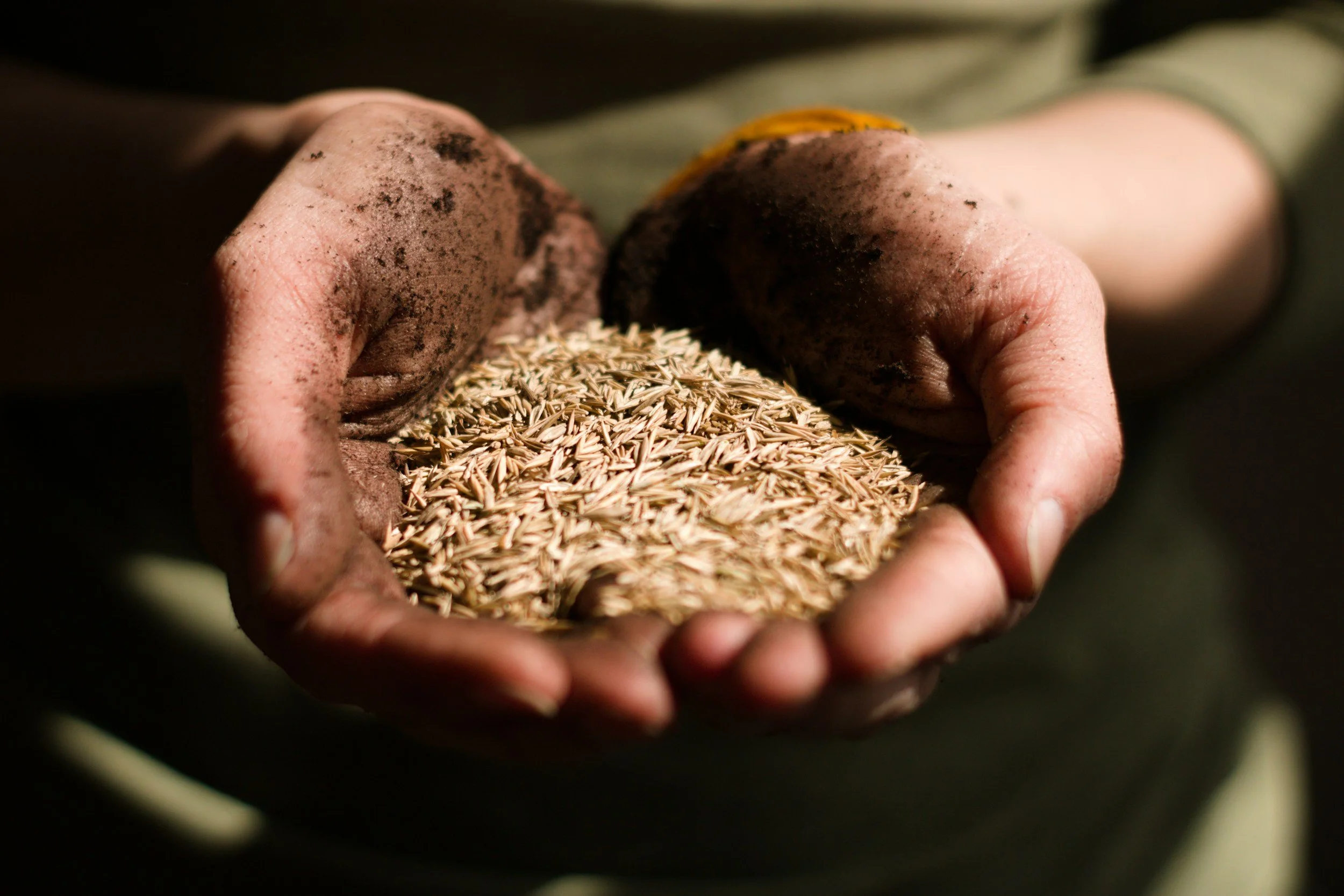7 Things We Can Learn from Netflix’s Sex Education
*SPOILERS AHEAD*
Sex Education is one of the top new shows for Gen-Z, and should probably be one of the top shows for every generation. From breaking down gender norms, and sexual stereotypes, to teaching teens how to engage in safe, consensual, and pleasurable sex. This show engages its audience in an important conversation that needs to be had. Here are the top seven things we should all be taking away from Sex Education.
1. Having healthy conversations about boundaries.
One of the most important things in any relationship, whether it's a friendship, a family relationship, or a romantic relationship, it is important to discuss our boundaries with others surrounding all aspects of our lives. However, probably most important is discussing our boundaries in our romantic and sexual relationships. Across all of the relationships depicted in Sex Education we see a violation of someones boundaries in some way or another, and more often than not, this allows our characters to move forward and have a healthy discussion of these boundaries and their expectations, and wants.
Beneath this category also falls the discussion of kinks, and sexual desires with an intimate partner. This conversation may be uncomfortable, or it might be smooth sailing, but just because you may feel awkward speaking about it doesn’t necessarily mean you are with the wrong person or wrong in your feelings. Take for instance Lily and Ola in Season 1. Lily’s love for aliens has manifested into a kink that begins to dominate their relationship. Instead of expressing her needs of a sex life which does not solely involve Lily’s fantasies in fear of making Lily uncomfortable, Ola ignores it. Eventually this leads to a harmful impact on their relationship. If Ola had instead communicated her needs, however uncomfortable, a tremendous amount of hurt could have been avoided by having an open conversation.
2. The importance of gender expression and inclusion.
Season 3… Oh Hope, how we hate you. An at-first cool lady, turned evil. Hope serves as the perfect character to bring in the importance of gender expression when she comes head to head with Cal. Not only is the shows depiction of the conflict well done in terms of its dramatisation, it is also very realistic. While many institutions are moving forward into gender inclusivity, they often miss the mark on the importance of certain aspects of the movement, such as continuing the gendering of uniforms and sports attire.
While I am not non-binary, I cannot speak on the communities behalf. However, what I can say is, Sex Education is one of the first forms of mainstream media to really begin tackling ideas related to the social construct that is gender.
3. Destigmatization of masturbation.
One of the first conflicts we are introduced to in the show is Otis’s aversion to masturbation. This becomes a regular theme throughout the first Season, as we tackle many issues surrounding masturbation. Perhaps one of the biggest issues the show tackles is the idea that not only men masturbate, and it’s not a shameful thing for women to do. I think I speak for many when I say that watching Aimee learn that self pleasure was okay flipped a switch in my brain and helped me break out of that shame bubble as well.
4. CONSENT
One of the biggest issues tackled in many series, and still disrespected in many series is consent. A word many men still have yet to figure out the definition of, and women have known for centuries. Consent is a major theme through out multiple episodes in Sex Education.
However, there was a moment when the show missed this mark. Eric, one of the most beloved characters in the show seems to diverge from his moral character when Adam tells him he isn’t ready to have sex. While Eric doesn’t fully pressure Adam with force or even words to essentially tell him he has to, instead, Eric hits the grey area. Now this is where we really need to be paying attention. Eric’s anger towards Adam, and his suggestion that they break up because clearly Adam isn’t ready to be where Eric is in his sexuality is still a violation of consent, even without the above mentioned factors. Pressuring a partner into sex in any situation is not OK, and whether or not your partner is ready is not up to you.
Another important issue which stems from this plot point is the idea of LGBTQIA+ somehow falling short in this category. As a bi woman, I see it often. Girls kiss other girls at party when they’re drunk, knowing they wouldn’t normally do something like that, often saying it’s in the name of expressing themselves. We see it in instances like those between Eric and Adam, a partner trying to invalidate and belittle their significant others sexuality and acceptance of it, by intrinsically tying it to the sexual pleasure they receive from their partner.
Image credit: Netflix
5. The importance of getting to know your partner.
I mention this above when discussing kinks, and desires with your sexual partner, but also getting to know them outside of that. Sure, knowing your partners desires in bed is great, but what about their pleasure. It’s important to know how to pleasure your partner, it’s not just all about you, and sometimes this can get really awkward. But, when we are able to talk about these aspects of our selves and our relationships, we take our relationships to the next level.
Not only is it important to know our partners sexually, it is more important to know them outside of the bedroom. Relationships (romantic ones) don’t work if it is solely based on the physical connection. We see this with Jean and Jakob. They believe that maybe they’re falling in love. Their sex life is healthy as can be, they’re all over each other. And still, when they start spending more and more time together, everything starts to crumble. They realise they don’t really know each other past the surface.
6. The harms of slut shaming
I’m not sure why this is even something we still need to discuss, but unfortunately it is. And Sex Education does an impeccable job of it. To see the whole school turn against a girl who was tested and came back clean for supposedly giving people an STD, felt all too real to way too many of us. Not only was it detrimental to the characters mental health and her education, it was also severely dangerous that false information as serious as that was being spread. This is an issue that faces so many girls in high school, and women in general, and it was nice to see it finally being addressed in a non-distasteful way.
7. How to properly portray a character with a disability.
I think I speak for everyone when I say that Isaac came out strong and then quickly took a dive in likability when he deleted Otis’s message. But this isn’t about his likability, this is about how well the writers wrote in Isaac. More often than not, noticeably disabled, and really any disabled people, are depicted with a certain amount of infantilisation in media. Sex Education does a wonderful job at avoiding this. Issac is just another character. He is shown as a functioning adult, capable of making his own choices, of falling in love and having a “normal” relationship, of being his own person. The writers portrayal of Isaac was refreshing when we are living in a world constantly forcing the idea that those who have disabilities are some how incapable of these things.
From gender expression, to slut shaming, to intimate knowledge with your partner, Sex Education covers it all with grace and without shame. The writers have created a space where people can feel safe and heard within their connections to sex.
_











